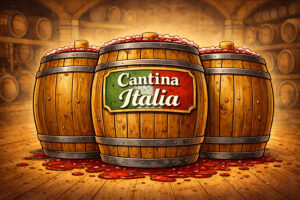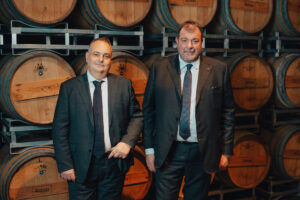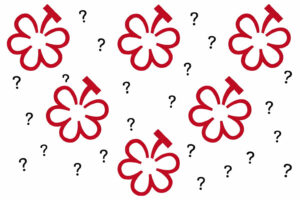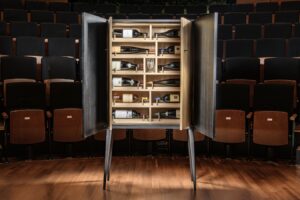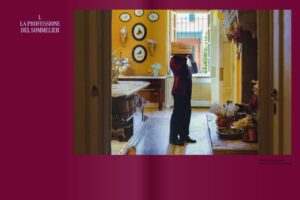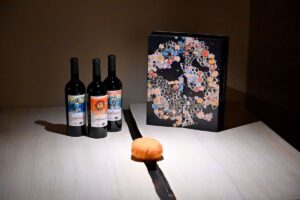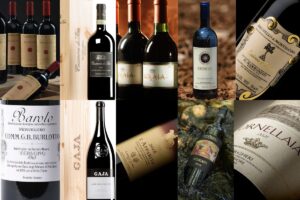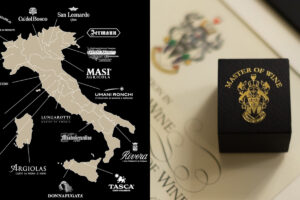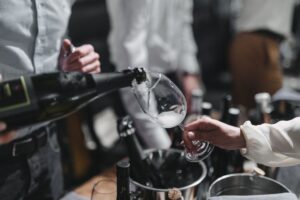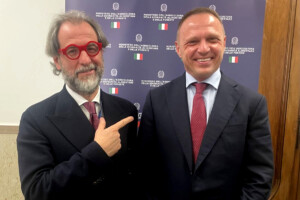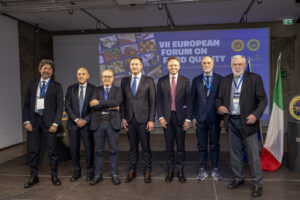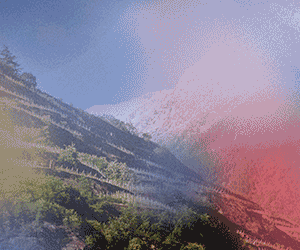Personalized recommendations, notes of automatized tastings, analysis of trends, demand forecasting, inventory management, marketing and communication contents. And still, vineyard sustainability, safety and development of workers’ skills, and innovation. These are the fields in which Artificial Intelligence (AI) can be inserted (and in some realities, it did it heavily) in the world of wine, because also this industry has not been certainly immune from this revolution, which is changing the “digital”, the way of working, and also the competences of the staff in a company. It’s a process that did not impact everyone in the same way, but the world of wine & food began to get to know it among simplifications and points to be further explored, because “to retire” human competencies would be a big mistake. Some interesting insights for the bond between Artificial Intelligence and wine, among possibilities and hidden dangers, emerged at “Wine2Wine”, a business forum by Veronafiere e Vinitaly, which finished today, in Verona, and that, this year, focused on the theme of Artificial Intelligence in various meetings, such as that with Felicity Carter, founder of “Drinks Insider” podcast, editorial director of Areni Global in London, and editorial consultant for a series of private clients, and Justin Noland, vice president of digital experience for Treasury Americas belonging to Treasury Wine Estates group.
The starting point is that “AI does nothing that human beings are not capable to, the difference is in the realization speed” and timing, as we know, is a fundamental aspect. Therefore, AI can represent a great ease, also for the world of wine. In the mentioned application areas, there are a better planning, a more effective client service, and faster reaction times. But those people who think to have a “magical tool” get wrong, because, mainly, as Carter explained, “no one managed to understand the code that allows us to recommend a wine to the clientele”. But, one of the problem of Ai is that it produces a “mild result”, and, therefore, “competences are needed: these, as a matter of fact, allow to get the best result with Artificial Intelligence”. Therefore, people are at the center. Certainly, life can get easier for wine producers, and Ai can, sure enough, intervene for the planning of a business plan, in administrative tasks, and for a help in writing a financial statement of a company. The speed in the resolution of the problems, probably represents its added value in specific cases: it is enough to think that, during a project against food waste, Air New Zealand took over 30,000 photos taking into account the contribution of AI, in order to notice which meals were not eaten during the flight, and therefore to improve the menu, analyzing the tastes of travelers deeply. But, whoever thinks that figures, such as content creators, sales representatives and other ones who “gravitate towards” wine universe, will not be around much longer, probably gets wrong. Time, and the eventual evolution of tools, will give the right answers.
Even if there is someone that begun to bet on Artificial Intelligence for a long time. This is the case of Treasury Wine Estates, Australian wine giant (the turnover for the fiscal year ended in June 2023 accounts for 2.48 billion of dollars, ed) and the fourth biggest wine producer in the world. Justin Noland, vice president of digital experience for Treasury Americas, belonging to Treasury Wine Estates group, underlined how Artificial Intelligence, and automation play an important role in all business aspects, from e-commerce to marketing, up to make wine activities more efficient, including sustainability. In regard to this last field, advantages came from the precision of vineyards’ treatments specifically, and a reported example is that of the installation of over 150 units of telemetry in order to monitor the use of water and the capacity of tanks, a decisive help to determine exactly how much irrigation is needed, in company vineyards (in 2023). Ai entering “at the steering wheel” of vehicles, with specific platforms that “are improving the safety of our staff” and not only. From this perspective, tractor drivers are improving their competencies to become operators of remote vehicles, and wine makers are freer to spend their time in vineyards and in the winery. Concretely, the first automation system of the value of 10 million dollars was launched in wine company Barossa Valley in Australia. “Pandemic - Justin Noland explained – changed the way of behaving with the client. Ai is useful also for creating content, to better communicate with each other, to observe consumer trends, and therefore to better know our clients, by generating a personalized narration. With Ai we receive ideas, which then have to be addressed. It’s not about replacing people, but about improving what we do, and our competencies; this is worth also for the safety, robots in wineries move wine barrels from one place to another”.
Copyright © 2000/2025
Contatti: info@winenews.it
Seguici anche su Twitter: @WineNewsIt
Seguici anche su Facebook: @winenewsit
Questo articolo è tratto dall'archivio di WineNews - Tutti i diritti riservati - Copyright © 2000/2025












